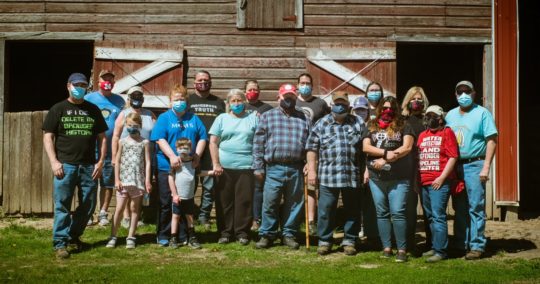This is a letter we received from David Daniel, a landowner in Texas who’s property is threatened by TransCanada’s Keystone XL. He gave us permission to share his thoughts on some recent TransCanada developments with you:
TransCanada is passing the buck like you’d pass a hot potato. After sending a copy of the NRDC report that details how tarsands pipelines, like TransCanada’s Keystone XL, present unaddressed hazards to public safety, our local media station, CBS 19, in Tyler started asking TransCanada for a response. After several attempts, a week went by and finally the response came on Dec. 22.
TransCanada’s Terry Cunha said “TransCanada is not an oil company, and they’re not responsible for what goes through their pipes.”
For two years now, TransCanada has been telling us:
- “any additives are no more harmful than the oil itself”
- “we don’t mix it with a lot of chemicals”
- “the oil is no more toxic than any other crude oil being pipelined across the country”
- “We’re not adding anything toxic to it. We’re not adding any additional chemicals.”
TransCanada representatives also claim that information is “not secret, and we’re unbelievably forthcoming on this project.” However, other representatives say that information cannot be released “on concerns related to national security, landowner privacy, and other considerations.”
TransCanada’s new message also comes from their CEO who said that oilsands shouldn’t weigh on Keystone XL debate. …This also falls on the heels of 47 anomalies recently detected in the Keystone 1 line. This would typically indicate that the thickness and strength in relation to pressure could be causing the pipe to [unusually] expand. TransCanada Spokesperson Jim Prescott asserted, “The way they make the components for pipelines is so sophisticated and so advanced now, the issue is not thickness, the issue is strength.”
Terry Cunha has said, “all pipelines expand once they begin operation and they are confident what they are seeing is not out of the ordinary.” However, in the CBS report, Cunha says “they won’t know if anything is wrong for a few more months. ” An email from the Department of Transportation says TransCanada found flaws it will be required to fix.
Also, when asked about potential leaks due to the combination of heat, high pressure, composition of contents, and a thin wall, TransCanada tells landowners that there is “no study available” and that “this can only be determined after the pipeline has been put into service and might take years to determine.”…
Where does the buck stop? If TransCanada is not responsible for what is in their pipeline, who is? TransCanada says this will be the safest pipeline ever built, but there are no real answers, no available studies, no accurate data and no fact based consistency in their messages. The only consistency is misdirection and confusion.
How are we to believe the job numbers? If they are just a transportation company that has no responsibility for what is in their pipe then they should not be able to make claims about the creation of refinery jobs.
Also, they should not promote that this heavy crude will benefit the U.S. market. They do not have control over where or how this product is sold on the open world market.
How can this foreign pipeline company, that does not have full regulatory approvals or an emergency response plan, be entitled to eminent domain for what is in essence a private project that will endanger thousands of lives and environmental resources for just a relatively small number of jobs?
So many questions, so few answers.



